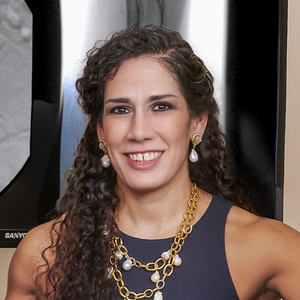
I can still hear my dad’s voice saying to me as a teenager “Mija, you have to work twice as hard as everyone else.” He didn’t want to talk about why this was the expectation for me and my siblings, rather saying “that’s just the way it is.”
My mom was from a poor family of migrant workers who lived along the Texas-Mexico border and travelled seasonally to fields across Texas to pick cotton and other crops. She went on to become salutatorian of her high school and first in her family to go to college. Also from humble beginnings, my dad grew up travelling for migrant work and became the first in his family to go to college, but not before his dad earned the ability to buy his own modest piece of land in the Rio Grande Valley to grow his own crops.
That grandfather, having worked as hard as anyone to be able to buy that land, had to rely on a Caucasian acquaintance to engage the bank on his behalf to complete the transactions. Always a generous man, he would lend his tractor and fertilizer to neighboring white farmers, only to have corporate buyers offer him a lower price for his produce.
As it turns out, that’s why dad said we had to work twice as hard. Although he didn’t want to verbalize it to us growing up, he recognized that the systems minorities encounter in life were not built for equity.
Those were among many stories about my family that I did not know when I applied for and earned an 8-year scholarship that included a spot at Baylor College of Medicine. I didn’t know those stories as I went through general surgery residency and vascular surgery fellowship there at BCM. Not until after I took my first job as a vascular surgeon in San Antonio, TX, did I begin to learn my own family history. This gave me a more thorough perspective and appreciation for my own Hispanic heritage, reflected in the hard work and sacrifice of my parents, grandparents, and those before them to give me the opportunity for a better education and a better life.
San Antonio is a thriving city well known for its Hispanic heritage. From the annual Fiesta celebration to the bustling shops at El Mercardo, we love our Mexican-American culture. We love it so much, in fact, that we frequently evade conversations regarding the opposite side of that thriving imagery. For example, our local Hispanic age-adjusted diabetes mortality rate is twice that of our non-Hispanic white neighbors. The diabetic amputation rates in majority Hispanic zip codes of our urban core are up to 3-times the statewide rate. Just like Fiesta and El Mercado, none of this happened overnight.
As I’ve grown as a surgeon and a member of the San Antonio community, I’ve learned so much more about the challenging history that brought us here. Looking back, it’s obvious that the segregation, racism, redlining, and overall oppression-by-design endured by Hispanics would inevitably result in major health disparities, even if by unintended consequence. I’ve learned to appreciate the societal progress we’ve made, thanks to giants like Dolores Huerta and Henry B. Gonzalez, along with the innumerable actions of Hispanic-Americans everywhere, while simultaneously recognizing that true societal equity is still a distant goal.
I’m so proud to be Mexican-American. My family’s sacrifices for me created the opportunity for hard work to lead to a larger purpose. My experience as a community-based vascular surgeon has revealed what that larger purpose is: to create opportunities for others until the ultimate opportunity of equitable healthcare, education, and socioeconomic progress for all is realized.
Currently, only 5.3% of SVS Active Members in the United States and Canada are Hispanic (only 14% of those are female!). As of 2019, 18% of the U.S. population alone is Hispanic. As we celebrate Hispanic Heritage Month, I’m reminded that if we ever wish to see equity within our professional representation, it’s my obligation to open doors for others as my Mexican-American ancestors did for me.